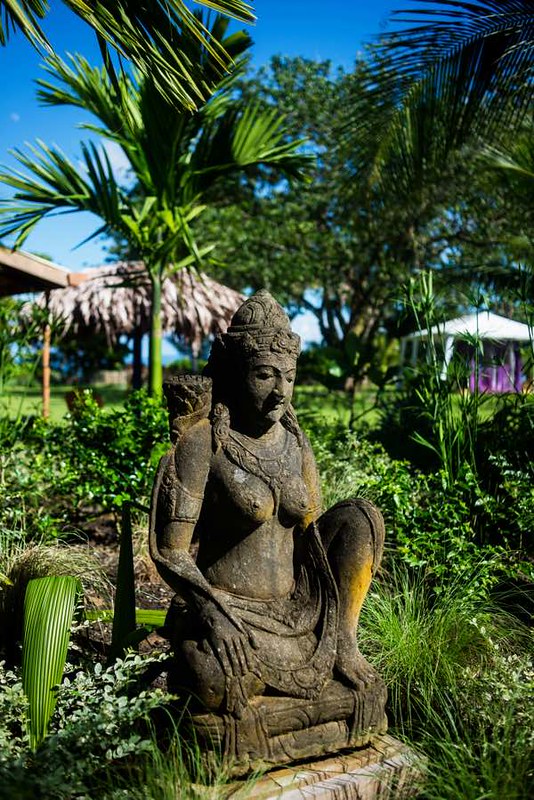The Yamas and Niyamas provide the moral codes or ethical guidelines of yoga. They offer us guidance and give us tools to live by.
In Part 1 of this series I explained the Yamas, this post dives into the Niyamas.
What are Niyamas?
Niyamas are personal attitudes or inner observances intended to help guide us to living a better life by guiding us to access the truth within ourselves.

The Five Yamas
SAUCHA
“Whatever form purifying takes, it always begins with an intention to ‘lighten’ the load we are carrying.”
Saucha can be described as purity or cleanliness. It is an invitation to purify our bodies, thoughts and words, as well as to be purely available to each moment as it happens.
In essence, it is the active pursuit of letting go.
Consider that how we keep the outside world is how we keep our mind. For example, notice when you clean out the physical clutter in your house that your mind feels clearer as well. However, saucha goes beyond physical cleanliness and requires us to identify and let go of habits that no longer serve us.
Impurities in our external and internal environment adversely affect our state of mind.
Journal questions for Saucha
Where is there heaviness in your life?
How does uncleanliness or impurity distract you?
What are some impurities in your life that are distracting you?
What kind of impure thoughts do you have in your life that distract you? What are some opposite thoughts you can begin to cultivate?
What are some things you have been waiting to cleanse from your life?

SANTOSHA
“Choose to stay established in contentment rather than tossed on the waves of the ups and downs of life.”
Santosha is living a life of contentment, it refers to practicing gratitude and having an appreciation for what is. When we practice Santosha we accept and appreciate what we have in this moment as it is, rather than craving things we do not have or the possessions of others.
Stop and ask yourself ‘what do I really need?’
Through practicing Santosha we no longer want things to be different, but instead are grateful for everything exactly as it is.
Journal questions for Santosha
What pulls you out of contentment? What could you do to choose contentment instead?
Do you consciously practice gratitude in your life?
How can you practice gratitude more each day? What are ways you can consciously incorporate gratitude?

TAPAS
“Tapas is the willingness to be both burned and blessed.”
Tapas refers to self-discipline, but can also be described or thought of as to heat, change or transform. Tapas requires effort towards a future value in lieu of a momentary pleasure. When we practice tapas we are supporting ourselves to be the person that we want to become.
Tapas often involves doing something you do not necessarily want to do, but you know will be good for you! Practicing Tapas builds our willpower and personal strength.
Journal questions for Tapas
Where are you investing your energy?
Moment by moment who are you trying to become?

SVADHYAYA
“We suffer because we forget who we are.”
Svadhyaya is self-study, the intentional seeking to know who you are and understand the role of ego. When we practice svadhyaya we are 100% accountable for ourselves and our actions.
This means we notice our projections and are able to trace back our actions to better understand ourselves and why we are the way we are.
By practicing self-reflection we become aware of things we do that are harming ourselves as well as those that are serving us, so we can make better choices.
Journal question for Svadhyaya
Name some of your beliefs, roles, characteristics, likes and dislikes. When all of these are taken away, who are you?

ISHVARA PRANIDHANA
“Surrender is ultimately a stance of devotion that takes place in the heart and permeates all of our attitudes and actions.”
Ishvara pranidhana is the act of surrender, actively putting ourselves at the feet of something greater than ourselves.
This means we need to pay attention to what life is telling us. Contemplate on the infinite, the idea that mind is empty and body is vast. Be vulnerable and undefended, remember that you are love, you are loving, and practice forgiveness.
This niyama relates to selfless service and caring deeply about something other than yourself.
Really look at yourself and examine your motivations for doing something.
Surrender is a stance of devotion that takes place in the heart.
Journal questions for Ishvara Pranidhana
What does your heart care about? Does this line up with your thoughts and actions?
When I am serving do I do so unconditionally, or is there a list of conditions attached to it?
Where in my life can I surrender more?

Summary of the Niyamas
The Niyamas provide guidance for our inner mind, helping us create a positive internal environment to live our most authentic life. Using the Niyamas we can cultivate self-discipline and inner strength.

